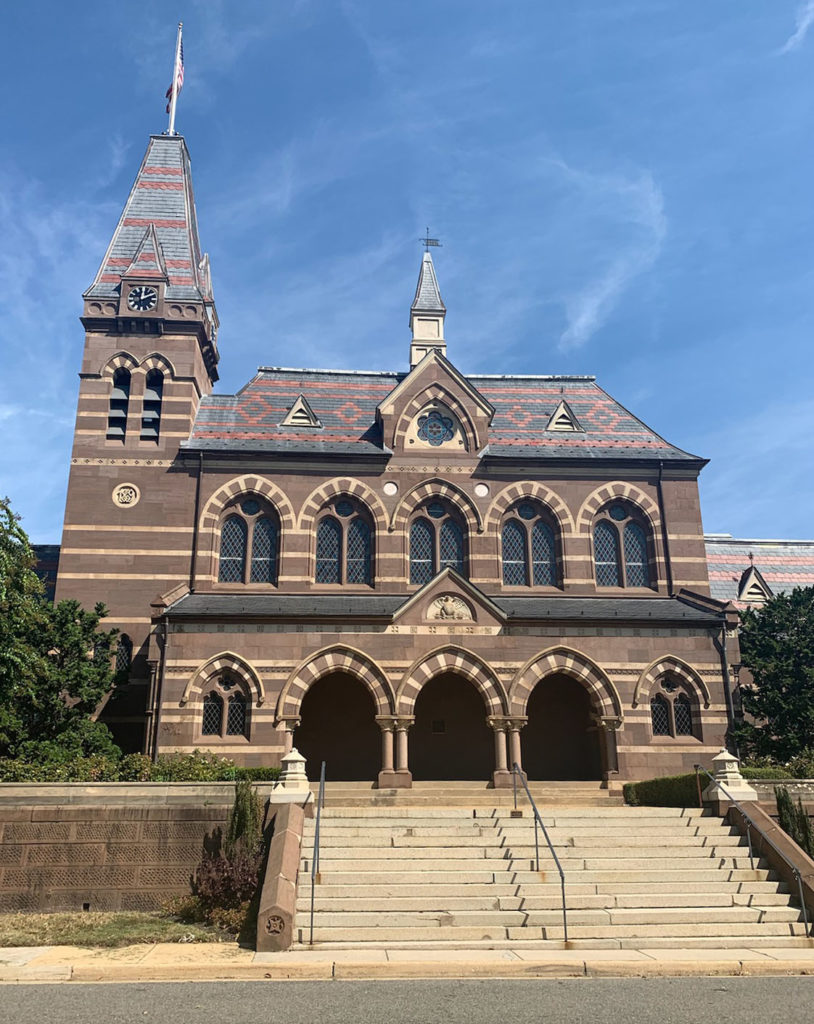October 17, 1959
Celebrate the 100th anniversary of the 19th Amendment with stories about the people and events that led to the passage of women’s suffrage in the United States.
“Woman should be free as the air to learn what she will and to devote her life to whatever vocation seems good to her.”
On October 17, 1959, Agatha Tiegel Hanson, the first female graduate (and valedictorian) of Gallaudet University and an early champion of both deaf and women’s rights, passed away at age 86.
Hanson was born in 1873 in Pittsburgh, Pennsylvania. She became deaf and lost her eyesight in one eye at the age of 7 due to spinal meningitis. In 1888, at only 15 years old, Hanson enrolled at Gallaudet University in Washington, D.C., which remains to this day the world’s only university designed to be barrier-free for deaf and hard of hearing students. Gallaudet had only provisionally accepted a small group of female students by that time, and none of them had completed the requirements for a degree.
In 1888, when Hanson entered Gallaudet, women were permanently allowed enrollment to the university. Enrollment, however, came with limitations. Because of the dearth of facilities for women, all female students were required to live in House One, an on-campus residence that also served as the president’s home.
Women could only participate in campus extracurriculars by invitation, and were not allowed to participate in debates with male students. Female students were also not permitted to leave the campus alone, and could only attend classes, extracurriculars, and meetings of the campus’s male-led literary societies with a chaperone.
In response to these various barriers placed on women at the university, Hanson organized a women’s debate group that would meet in their residence at House One. Due to the success of this endeavor, by 1889 the university president lifted the ban on women’s activities.
Hanson and a fellow student, May Martin, established O.W.L.S., a secret society for women. The group would meet to debate, discuss poetry and literature, and establish bonds of sisterhood – filling in the social gaps left in their male majority campus. In January of 1892, the group held its first meeting, and Hanson was elected its first president. The group, now known as the Phi Kappa Zeta sorority, still has an active chapter on the Gallaudet campus.
National Deaf Life Museum, at Chapel Hall, Gallaudet University, 2019. From 2015-2017 the Museum presented Deaf HERstory, which will become part of their virtual exhibition in the near future. Photo courtesy of Michelle Fernandez.
Hanson graduated from Gallaudet in 1893 as the university’s first woman to receive a Bachelor of Arts degree, and first female valedictorian. Upon graduation, Hanson delivered the commencement speech, entitled “The Intellect of Women,” in which she railed against the structural inequalities that stood between women and success:
"That such repression and restraint upon mental action are artificial has been demonstrated in all ages by women whose independence has bust every fetter and won them recognition in the fields of sciences, theology, literature, politics, and art. It is impossible to estimate the immensity of the influence that woman's mind has exerted on the history of the world, an influence silently wielded and never obtruded, but of a potency inferior to no other. If, during these ages of wrong custom, of false sentiment, she has often retained much of her greatness of intellect and soul, she will better do justice to her inborn powers when she has room and light in which to grow."
Following her graduation from Gallaudet, Hanson went on to teach at the Minnesota School for the Deaf. She later relocated to the Pacific Northwest, where she became involved in the Puget Sound Association of the Deaf, the Episcopal Church’s deaf mission, and the Washington State Association of the Deaf.
Hanson was also a prolific writer, contributing to “The Silent Worker” – a national newspaper serving the deaf community – as well as publishing a book of poetry entitled “Overflow Verses.” She also later served as an editor at the Seattle Observer, a newspaper for the deaf.
Learn more about the disability rights movement in “A Disability History of the United States” by Kim E. Nielsen, available in the Library catalog.
2020 marked the centennial of women’s suffrage in the United States.
